Clone of Air and Climate
Globally as well as locally, mitigating and adapting to climate change is one of the central challenges of our time. GW was the first university in Washington, D.C. to join the American College and University Presidents’ Climate Commitment (ACUPCC) in 2008. In 2010, the university published its Climate Action Plan in which it committed to becoming carbon neutral across all three scopes of greenhouse gas (GHG) emissions by 2040.
In 2015 GW committed to develop, in partnership with the community, a plan to prepare the university to adapt to environmental, health and business disruptions resulting from climate change. Most recently, through Second Nature’s Climate Leadership Network, GW joined We Are Still In, a commitment with other U.S. universities, cities and states in pledging to meet the goals of the Paris Agreement.
Carbon neutrality for GW will be achieved by reducing university emissions by at least 80 percent through efficiencies and cleaner energy sources and by using credible, local offsets to negate the remaining emissions. GW actively encourages the use of low carbon options for travel and commuting and partners to reduce the overall dependence of our region on carbon-intensive energy. Many GW buildings are LEED-certified, with energy- and water-efficient equipment, green roofs and rainwater reuse systems among other sustainable features. GW’s Eco-Building Program, established in FY2012, prioritizes improving building energy efficiency and enhancing information technology systems to reduce energy use.
Highlights
Capital Partners Solar Project
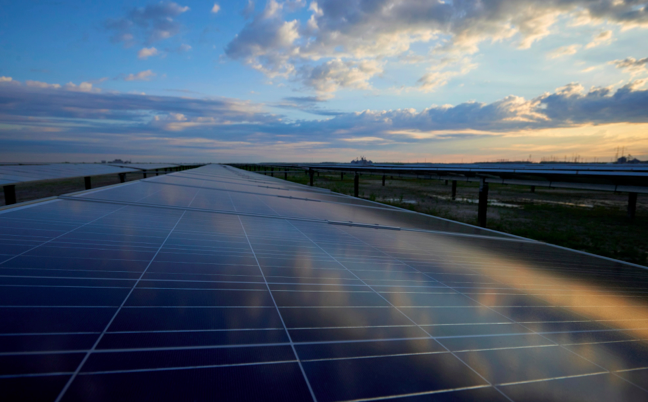
Capital Partners Solar Project is an innovative renewable energy project that provides solar power for GW, American University and the George Washington University Hospital (GWUH). It is comprised of 53.5 megawatts (MW) of solar photovoltaic (PV) power.
This project demonstrates how large organizations in an urban setting can partner to significantly reduce their carbon footprints by purchasing offsite solar energy. Supplied by Duke Energy Renewables, the solar power helps all three institutions reduce their carbon footprint significantly, abating approximately 84,900 metric tons of carbon dioxide equivalent (MTCO2e) compared to conventional electricity. This is equivalent to taking roughly 17,900 cars off the road. In addition, the project will yield economic savings for each institution as the price of traditional power is expected to increase over the duration of the 20-year project contract.
Designed and facilitated by CustomerFirst Renewables (CFR), this project is a model for other urban institutions that want to meet their electricity needs using renewable energy. The groundbreaking for the first site located in Pasquotank County near Elizabeth City, NC took place in summer 2014 and the project began to deliver electricity in full by the beginning of 2016.
Green Buildings
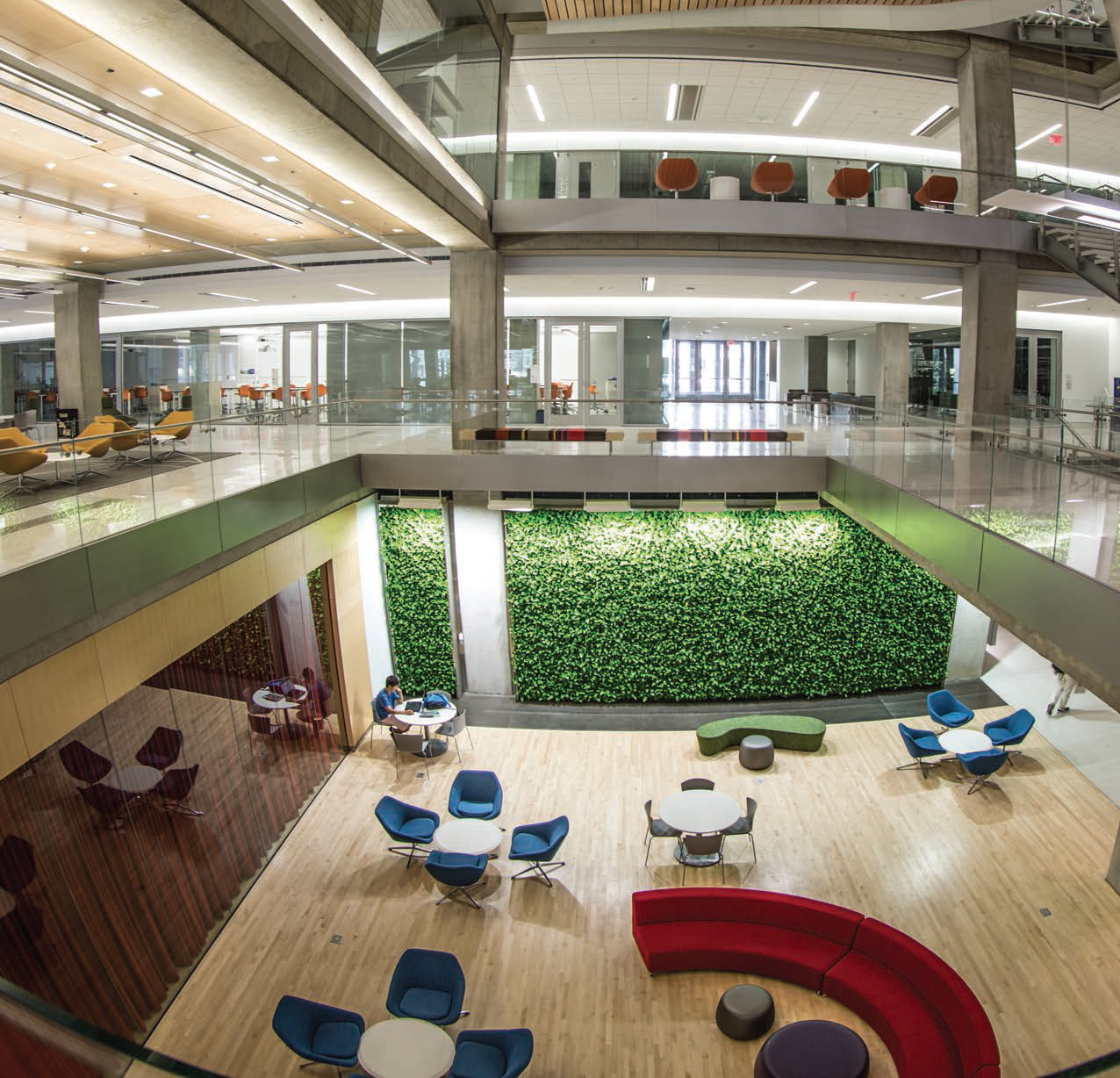
GW has launched four large energy and water efficiency projects known as the Eco-Building Program. In fall 2011, the university's Innovation Task Force, a committee launched by President Steven Knapp in 2009 to identify cost savings and new revenue for reinvestment in the university’s top academic priorities, accepted the idea for the Eco-Building Program. The university’s Facilities Services and Office of Sustainability are implementing and managing the Eco-Building Program in phases, a few campus buildings at a time.
The Eco-Building Program has been installing more modern and efficient equipment in selected buildings to reduce energy and water use, operating costs, and greenhouse gas emissions. These initiatives include: more efficient use of potable water; upgrading old HVAC equipment like boiler controls, chillers, and air-handling units; adding new HVAC equipment like variable-speed drives and variable-air-volume boxes; retro-commissioning older HVAC equipment; and installing more energy-efficient lighting and controls.
These projects are being developed using a holistic view of savings opportunities across campus. Phase 1 focused on the Gelman Library block of buildings. Phase 2 focused on the Lisner Hall block of buildings. Phase 3 focused on Rice Hall, Marvin Center, and Funger and Duquès Halls. Phase 4, which is about to begin, will include four buildings at the Virginia Science and Technology Campus.
LEED Certified Buildings
PLATINUM: Lorem ipsum dolor sit amet, consectetur adipisici elit, sed eiusmod tempor incidunt ut labore et dolore magna aliqua. Ut enim ad minim veniam, quis nostrud
GOLD: Lorem ipsum dolor sit amet, consectetur adipisici elit, sed eiusmod tempor incidunt ut labore et dolore magna aliqua. Ut enim ad minim veniam, quis nostrud
SILVER: Lorem ipsum dolor sit amet, consectetur adipisici elit, sed eiusmod tempor incidunt ut labore et dolore magna aliqua. Ut enim ad minim veniam, quis nostrud
Charged Up Solar Design Competition

The GW Office of Sustainability invited student innovators to participate in a design competition for a campus solar charging station sponsored by the GW Division of Operations. The station will be part of a larger display on campus (yet to be constructed) of solar panels and signage that explains on-campus solar and the large-scale off-site Capital Partners Solar Project, which provides GW with 50% solar electricity.
The winning project, called Marisol, was designed, built, and installed by a team of interdisciplinary undergratuate students. The design, which incorporated themes of culture, artistry, and engineering, provides an opportunity for students to engage with renewable energy, first-hand, as they use it to charge their personal devices outside.
Get Involved
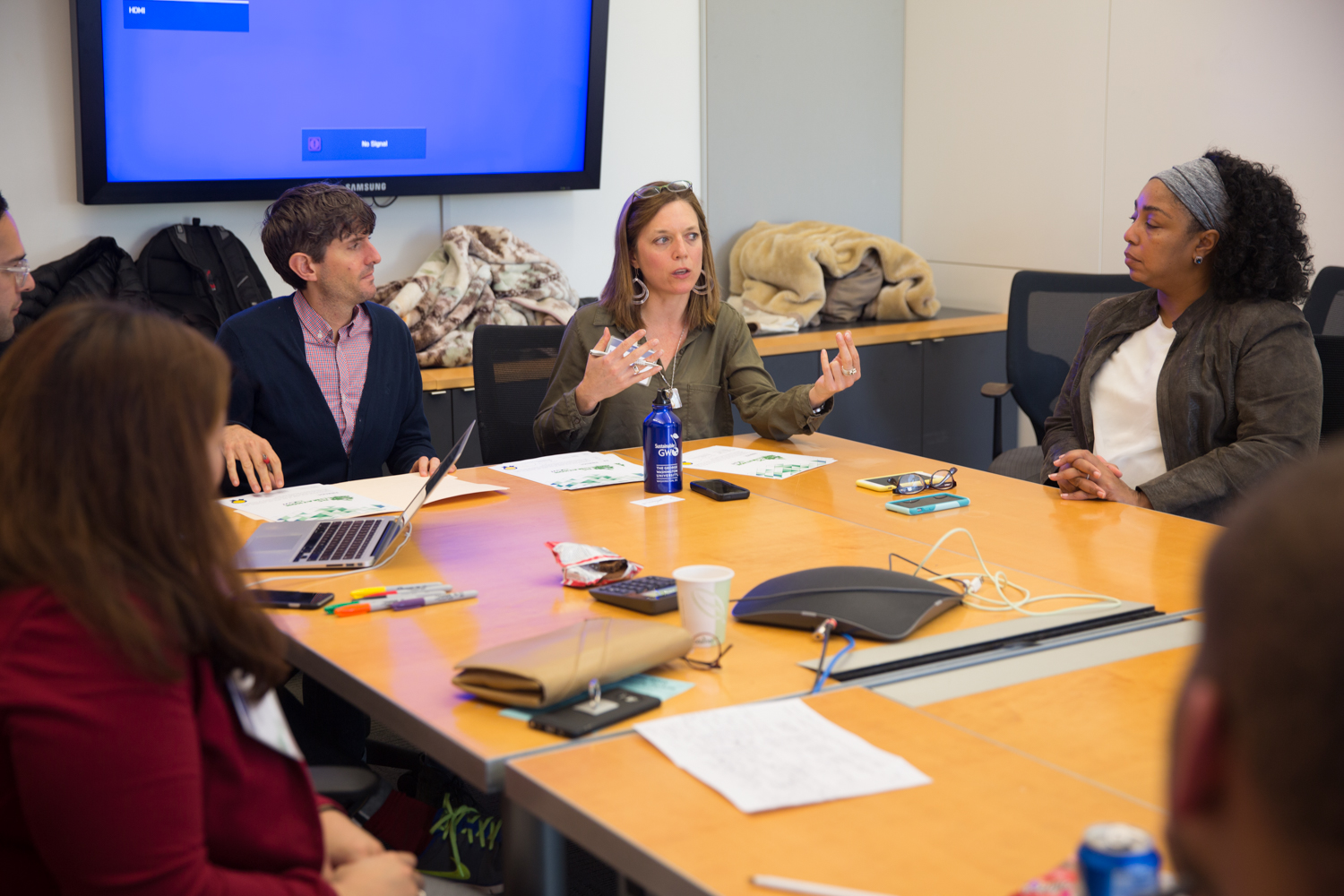
DC Climathon at GW
As part of a global movement to develop innovative solutions to cities' climate change challenges, GW hosts an annual 24 hour hackathon in partnership with DC's Department of Energy and Environment.
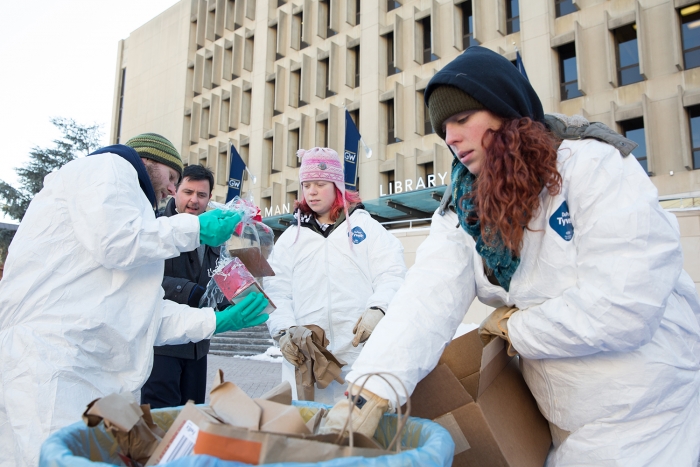
Eco Reps
Students serve as green leaders in their residence halls and across campus.
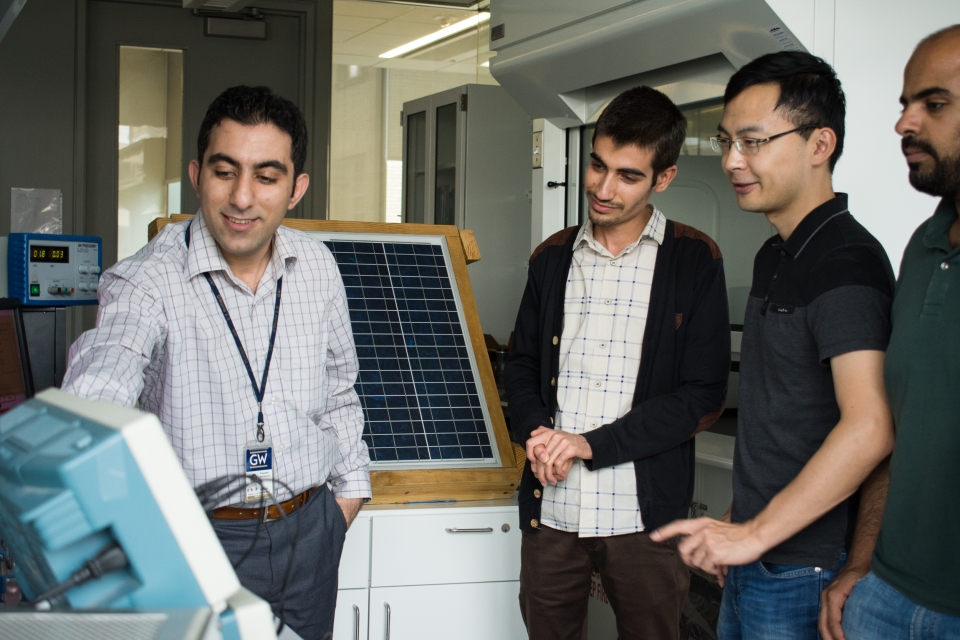
Duke Energy Renewables Innovation Fund
Through the Duke Energy Renewables Innovation Fund, interdisciplinary GW faculty teams can compete for grant funding to conduct energy-related research.
.png)



